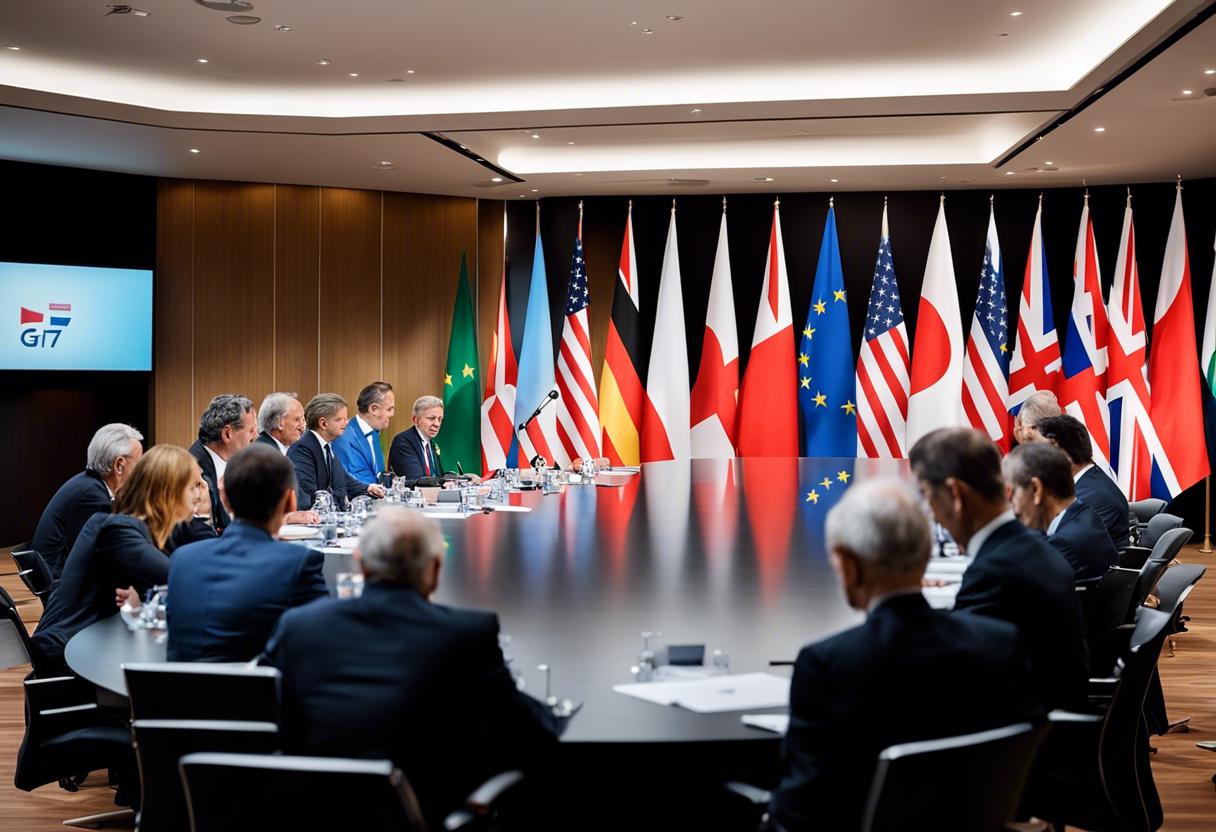The leaders of the G7 have expressed their most severe admonition yet towards China for its assistance to Russia, accusing Beijing of facilitating Russia’s conflict in Ukraine with the potential of more penalties should it continue to supply materials essential to Moscow’s defence sector. The concluding declaration from the Italy-hosted summit projects a tougher attitude towards China than previous stances, evidencing the heightening dissatisfaction in both the US and Europe over Beijing’s critical support for Russia during the Ukraine war.
According to the G7 leaders’ unified statement, China’s constant backing for Russia’s defence industry is facilitating Russia’s illicit Ukraine war which has wide-ranging security ramifications. They have appealed to Beijing to halt the provision of dual-use materials, including weaponry parts and tools that contribute to Russia’s defence industry.
The American government has consistently urged its European allies within the G7 – namely the EU, France, Germany, Italy, and the UK – to adhere more strictly to their hardline approach towards China. They argue that China’s role in supporting President Vladimir Putin’s administration while it instigates war with Ukraine symbolises Beijing’s decision to align with Russia against Western interests.
A US official stated on Friday that China’s support for Russia represents a protracted security concern for Europe and is a matter of anxiety for all G7 members. This sentiment has found increasing resonance within the G7 group. On Friday, these leading world economies expressed willingness to undertake further steps to financially restrain China, including through sanctions. Both the US and EU have already sanctioned Chinese firms they claim have facilitated Russian imports of goods embargoed by the West.
Reliable sources involved in the discussions describe the dialogue on China as using “strong language” with regard to Beijing’s support for Russia, and its part in helping Moscow circumnavigate Western sanctions. The insiders also noted a readiness to take action against cooperation between Russia and Iran, which includes military equipment and battlefield expertise.
Additionally, there is a shared sentiment that naive attitudes towards Beijing are finished and that China’s own actions are to blame. Alongside concerns regarding China’s relationship with Russia, the G7 are becoming more confrontational towards Beijing’s economic policies.
Following the recent imposition of tariffs on Chinese electric vehicle manufacturers by the EU, and the US’s decision to levy new taxes on clean-energy products among other Chinese imports last month, discussions are due to begin among G7 leaders. The tariffs were implemented on the grounds of allegedly unfair subsidies granted to these industries. The leaders of the G7 countries assert their readiness to further address policies that they deem contribute to global disruptions, market imbalances and detrimental overcapacity in an increasing number of areas.
The consensus from these countries is clear – they will persist in executing measures that are both necessary and apt in safeguarding their workers and businesses against perceived unjust practices. Their aim is to balance the business ambience and rectify lasting damage, as stated in their forthcoming proclamation.
However, views on the ideal economic response within the G7 are not unanimously aligned. Ursula von der Leyen, the President of the European Commission, expressed to other G7 leaders last Friday that any retaliatory steps taken should abide by the principle of not causing harm to one another. She highlighted the importance of avoiding potentially adverse effects on each other, whether intended or not, due to the introduction of these measures.
A senior official from the EU acknowledged China’s omnipresence within G7 discussions, raising questions on how to aptly adjust their reactions accordingly.
– Copyright The Financial Times Limited 2024

